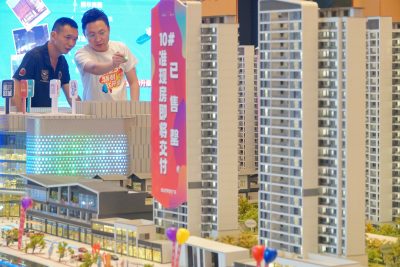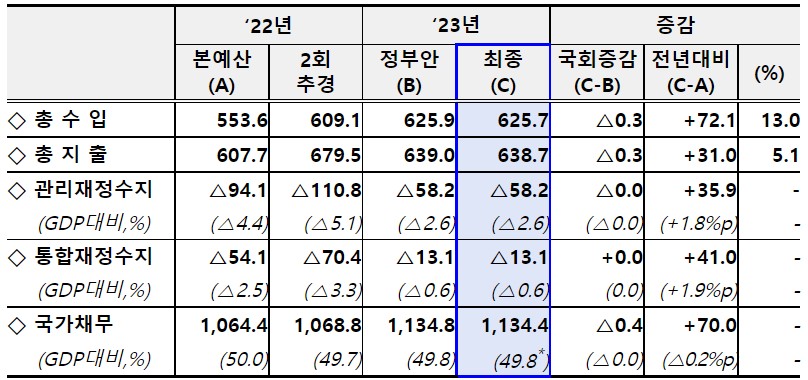[동아시아포럼] 중국이 부동산 산업 지원 정책을 지속하는 이유
중국, 우려 속에 부동산 지원 정책 확대 부동산 산업은 중국 경제 성장의 핵심 부동산 망하면 중국 경제도 망해
[동아시아포럼]은 EAST ASIA FORUM에서 전하는 동아시아 정책 동향을 담았습니다. EAST ASIA FORUM은 오스트레일리아 국립대학교(Australia National University) 크로퍼드 공공정책 학교(Crawford School of Public Policy) 산하의 공공정책과 관련된 정치, 경제, 비즈니스, 법률, 안보, 국제관계 및 사회에 대한 연구·분석 플랫폼입니다.
저희 폴리시코리아(The Policy Korea)와 영어 원문 공개 조건으로 콘텐츠 제휴가 진행 중입니다.
중국 정부가 부동산 지원 금융 정책 연장과 재개발 구역 확장 계획안을 발표했다. 이를 두고 경제 전문가들은 부동산 산업에 대한 중국 정부의 과도한 지원이 산업 불균형 초래와 장기적 성장 가능성을 억제할 수 있다고 지적한다. 이같은 리스크에도 불구하고 중국 정부가 지속적인 부동산 부양책을 펼치는 이유는 뭘까.

중국, 전방위적 부동산 지원 정책 진행 중
지난 7월 10일 중국 인민은행과 중국 국가금융감독관리국은 부동산 지원 금융 정책 기간을 연장하는 내용의 추가 공고문을 발표했다. 해당 정책은 지난해 11월 중국 인민은행과 은행보험감독관리위원회가 발표했던 것으로 ‘부동산 금융 안정화, 부동산 매매를 위한 금융 서비스 개선, 부실 부동산 기업 리스크 감소, 주택 임대 금융 지원 확대’ 등의 내용을 담고 있다. 이번 연장 조치에는 기존 내용에 세 가지 사항이 추가됐다.
먼저 대출 연장 및 상환금 조정 등을 통해 기존 부동산 대출을 지원한다. 예를 들어 상환 만기가 2024년 12월 31일 이전인 대출의 경우 만기를 1년 더 연장할 수 있게 했다. 또한 2024년 12월 31일 이전에 상업은행을 통해 진행된 PF(프로젝트 파이낸싱) 대출을 받은 사업자는 대출 기간 동안 신용 등급이 하향되지 않는다. 아울러 신규 대출이 부실화되더라도 담당자와 대출기관은 책임을 면책받을 수 있다.
사실상 부동산 부양책인 금융 지원 정책 연장에 이어 중국은 7월 23일 인구 500만 명 이상 대도시 외곽지역까지 대규모 재개발을 허용하는 심의안을 통과시켰다. 2023년 기준 인구 500만 명 이상이 거주하는 중국 대도시는 19개에 이른다. 최근에는 도시 인구 유입을 억제하던 호적 폐지도 검토 중인 것으로 알려졌다. 금융, 행정, 제도 등 가능한 모든 정책을 통해 부동산 지원 정책을 펼치는 것이다.
경제 전문가들은 중국 정부의 부동산 산업 전폭적 정책 지원이 시장의 도덕적 해이를 유발하고 중국이 추구하는 소비 주도형 경제 발전 모델을 저해할 수 있다고 지적한다. 일각에선 중국 도시 가계 자산의 70% 이상이 부동산이고, 중국 주택 가격 하락은 소비 수요 침체와 경제 성장 약화를 초래할 것이라 주장하는 목소리도 있다. 하지만 이와 같은 주장은 중국의 부동산 정책 추진 배경 중 일부에 불과하다. 중국 정부가 강력한 부동산 지원 정책을 추진하는 실제 요인을 알기 위해선 정치 경제학적 측면에서 중국을 들여다봐야 한다.
GDP·재정 수입·고용, 부동산 몰락은 곧 중국의 몰락
급속한 도시화와 산업화 과정에 있는 중국은 경제 성장 지속을 통해 오는 2035년까지 ‘중견 선진국’을 목표로 하고 있다. 최근 중국의 GDP 성장률은 경제 성장 호황기였던 1990년대보단 낮지만, 여전히 연간 4~5%의 성장률을 기록 중이다. 중국이 쌓아 올린 ‘경제 기적’의 배경엔 2013년 이후 전체 GDP의 평균 13.4%를 차지했던 부동산 산업이 있었다.
미국 스탠퍼드대학교의 보고서에 따르면 2018년 중국 부동산 산업은 중국 GDP의 약 26%를 차지하는 것으로 나타났다. 26%란 수치는 세계 평균 대비 매우 높은 비율이다. 전문가들은 이 비율 때문에 고정자산 투자 확대와 지원 정책 추진을 통한 불안정한 대외 정세 대응과 내수 경제 안정화에 나선 것으로 분석한다.
중국 정부의 부동산 지원 정책 추진의 또 다른 배경으로는 중국 지방 정부의 주요 수입원이 토지 매각이란 점이 거론된다. 중국 지방 정부가 부동산 개발업체에 토지를 판매한 대금과 부동산 관련 세금은 정부 수입의 약 40%를 차지한다. 해당 수입은 다시 인프라 개발과 같은 지역 경제 개발 사업에 사용돼, 민간 투자를 유치하고 일자리를 창출하는 등 중국 경제 성장의 선순환 구조를 형성하는 데 기여한다. 중국의 심각한 지역 불균형 현상을 해소하기 위해서도 부동산 부양책이 필요한 것이다. 이와 같은 이유로 중국 지방 정부는 토지 매각뿐만 아니라 부동산 개발 사업에 강력한 인센티브를 제공하는 등 적극적인 부동산 정책을 진행 중이다.
일각에선 토지 판매 중심의 지방 정부 재정 시스템이 근시안적 정책 결정으로 이어질 수 있다고 지적한다. 중국에서 나타나는 경제 불균형의 주요 원인이 부동산 산업에 지나치게 의존적인 경제 구조라는 것이다. 이와 같은 지적에도 불구하고 토지 매각 대금과 부동산 세금은 정책 진행 즉시 수입이 발생하는 장점이 있어 중국 지방 정부의 주요 재정 수입원으로 선호된다.
일자리 문제도 배경으로 꼽힌다. 중국 노동시장에서 부동산 산업은 중요한 고용주 역할이었다. 중국 정부가 발표한 제4차 국민경제조사에 따르면 중국 부동산 업계의 직접 고용 인구는 2018년 기준 1,264만 명으로 2013년에 비해 44% 증가했다. 2018년 기준 주택 건설 산업에 고용된 근로자가 3,591만 명인 것을 고려하면 2018년 중국 부동산 업계에서 직접 고용된 인구만 약 4,900만 명에 육박한다. 간접 종사자와 파생 산업, 부양 인구까지 고려하면 실로 어마어마한 경제 부양 효과를 가진 셈이다.
미·중 무역 분쟁, 코로나19 팬데믹, 중국 디플레이션 등 대내외적 요인으로 인해 심화된 일자리 문제와 마주한 중국은 실업률 해소를 위해서라도 부동산 산업을 포기할 수 없다. 대내외적 문제 발생하기 시작한 2018년 이후 중국 31개 대도시의 실업률은 약 12% 이상 증가했다. 그중 16~24세 근로자의 실업률은 2018년 초 11%에서 올해 6월엔 약 21%로 급등했다. 국가 경제의 주요 지표인 청년 실업률이 급증한 상황에서 노동시장의 주요 고용주인 부동산 산업마저 위축되면 실업률 급증과 내수 경제 붕괴로 이어질 수 있기 때문이다.
부동산 부양책 한동안 계속될 것으로 예측
집값 상승으로 성난 민심을 달래기 위해 ‘주택은 투기가 아닌 거주를 위한 것’이라 발표했음에도 불구하고 중국 정부는 금융·행정·인구제도 등 거의 모든 분야에서 부동산 산업을 적극 지원하고 있다. GDP, 재정 수입, 고용 등 주요 경제 지표에 부동산 산업이 크게 기여하고 있기 때문이다. 경제 전문가들은 중국이 경제 성장을 지속하기 위해 신용 의존적이고 과다 부채를 유발하는 부동산 개발 패러다임을 계속 유지하지 않으리라 예상하지만, 현재 중국의 경제 구조상 부동산 산업 지원 정책은 당분간 지속될 가능성이 높다.
전문가들은 2011년부터 중국의 경제 전환 과정이 험난할 것으로 추측해 왔다. 부동산 산업은 중국의 급속한 경제 성장에 핵심적인 역할을 수행했으나, 비대해진 산업 규모로 인해 중국 경제 전환의 발목을 잡고 있다. 현재 중국 정부 앞엔 경제 안정, 고용 유지, 부동산 투기 억제, 경제 전환 등 당면한 국가적 과제의 균형을 맞출 수 있는 ‘섬세한 정책 진행’이란 과제가 놓여있는 가운데, 올해 중국 경제 구조는 특히 더 복잡하고 장기적인 경제 전환책이 요구된다.
Why Beijing supports China’s real estate industry
On 11 November 2022, the People’s Bank of China and the former Banking and Insurance Regulatory Commission issued a joint notice outlining 16 supporting policies for the real estate sector. It was aimed at ‘maintaining orderly and stable real estate financing, improving financial services for building handover, handling risks of distressed real estate companies, and increasing financial support for housing rental’.
China’s overall real estate policy has relaxed since then. On 10 July 2023, the People’s Bank of China and the National Financial Supervision and Administration Bureau issued an additional notice to extend the policy period. This reaffirms Beijing’s commitment to supporting the ‘healthy development’ of the real estate industry. The extension involves two key points.
Financial institutions were encouraged to support existing real estate loans through loan extensions and adjusted repayments. Loans due before 31 December 2024 could be extended for an additional year without changing their classification. Loans issued for unfinished projects before 31 December 2024 by commercial banks that adhere to the 2022 Notice will not be downgraded during the loans’ term. For newly issued loans that become non-performing, the institutions and personnel performing their duties can be exempted from liability.
Such persistent policy support for the real estate industry may create moral hazard and hamper the consumption-driven economic development model that Beijing wants. Some posit that the Chinese government still staunchly backs this industry because housing represents more than 70 per cent of urban household wealth. A decline in housing prices could create negative wealth effects that weaken consumer demand and economic growth. But this is just one facet of the rationale. Major political economy explanations provide a more comprehensive understanding of this quandary.
China’s primary national interest is sustaining economic growth as China aims to become ‘a medium-level advanced nation’ by 2035. China is now in the process of rapid urbanisation and industrialisation. The country’s future GDP growth rate is expected to be 4–5 per cent per annum — lower than it has been since the 1990s but still modest. The real estate industry has contributed significantly to China’s ‘economic miracle’, averaging 13.4 per cent of GDP since 2013.
According to a Stanford University report, the sector ‘has remained around 26 per cent of GDP since 2018’ — a high portion by both international and domestic standards. Given the unstable external environment and the challenges of domestic economic transition, higher fixed asset investment and support for the real estate industry appear to be the Chinese government’s most viable options for the near and medium term.
Another explanation for why the government backs the real estate industry so readily is that Chinese local governments rely heavily on revenues generated from selling land to real estate developers. This land sales revenue, combined with real estate taxes, contributes nearly 40 per cent of the government’s income.
This income is used for local economic development, including infrastructure projects. These infrastructure developments attract further investments, stimulate local economies and create jobs, forming a cycle of economic growth. The Chinese government, especially at the local level, has strong incentives to support and stabilise the real estate industry. But a land-sales-focused fiscal system could lead to myopic governmental decision-making. An over-reliance on the real estate sector has already led to an economic imbalance and raised long-term sustainability concerns. Still, as a significant source of fiscal revenue, the real estate sector is favoured over other vital sectors.
The real estate industry is also a significant employer. According to the Fourth National Economic Census, the industry directly employed 12.64 million people as of 2018 — a 44 per cent increase from 2013. Considering that the housing construction industry employed 35.91 million workers, the total number of people in real estate-related jobs in 2018 was close to 49 million. During economic hardship, the role of the real estate industry as a significant employer becomes crucial. China’s unemployment rates in 31 large cities have increased more than 12 per cent since 2018 due to the US–China trade war, the pandemic and domestic deflationary pressure.
Surveyed unemployment rates of workers between 16 and 24 years old have spiked from 11 per cent in early 2018 to roughly 21 per cent in June 2023. Widespread unemployment within the real estate industry could exacerbate economic damage and social problems. So for the Chinese government, a resilient real estate industry is critical for economic and social stability in the foreseeable future.
Despite the Chinese government’s insistence that ‘houses are for living, not for speculation’, the government continues to support this sector due to its crucial contribution to China’s GDP, fiscal revenue and employment. While there is a growing consensus that Beijing is unlikely to adhere to the credit-fuelled, debt-laden property development paradigm, it will likely continue propping up the real estate industry to avert systemic perils — given its many stakeholders — in the foreseeable future.
In 2011, I argued that the path of China’s economic transition would be bumpy. The journey remains intricate and protracted. The real estate sector has been instrumental in China’s rapid economic growth, but it presents complex challenges for this transition. Balancing economic stability, employment preservation and the prevention of speculative bubbles have been — and will continue to be — a delicate task.
원문의 저자는 미국 버클리대학교에서 중국 정치·경제를 연구하는 학자이자 중국 베이징외국어대학교 국제경영대학원 G20센터의 유한 장(Yuhan Zhang) 겸임 교수입니다.



























